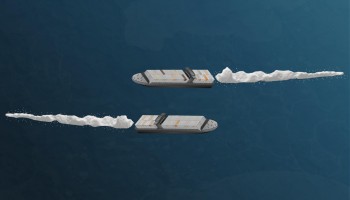The former Yugoslav states primarily serve as transit countries for narcotics arriving from the Middle East, Africa, and increasingly South America, according to the report. Albania is an exception, with its notable but decreasing production of marijuana. The geographic location of the former Yugoslav states, corruption at all levels, and weak judicial and law enforcement bodies make these countries vulnerable to drug trafficking.
According to the report, corruption presents a serious problem for Albania’s efforts to combat organized crime. “Low salaries, social acceptance of graft and Albania's tightly knit socialnetworks make it difficult to combat corruption among police, judges and customs officials” the report reads. Despite the increase in the number of prosecuted corruption cases, the number of guilty verdicts dropped by 23% compared to 2010. “Some verdicts seemed questionable, giving the evidence, suggesting that judicial independence for unbiased, transparent proceedings continues to be a problem.”
In Bosnia, the report states, the main problem is not the lack of political will to tackle drug trafficking, but rather a lack of resources. The country’s limited resources are stretched between competing demands, such as prosecution of war crimes, human trafficking and counterterrorism. Bosnia ranked low both in terms of production and consumption of narcotics. Lack of personnel presents a serious problem for the control of borders and prosecution of criminals. Despite this, the Bosnian police “has been considered one of the more effective border services in Southeast Europe and is one of the best functioning multi-ethnic state-level institutions in Bosnia.”
The report described Croatia as having a “well-developed institutional and legal framework” for fighting drug-related crimes. Macedonia is described as being neither a major drug producer nor a major transit country for illicit drugs.
Montenegro and Serbia are considered major transit hubs for Middle Eastern and South American drugs. “Cocaine is smuggled by sea and air from South America to Montenegro with the increased involvement of Montenegrin citizens, either as organizers or couriers.”
In Serbia, the trafficking and even production of synthetic drugs remain a concern.
While different branches of law enforcement in Serbia report good internal cooperation, USDS notes that Serbia lacks a “government-wide coordinating body that has a clear lead in counter-narcotics law enforcement efforts, analogous to the U.S. DEA.” As Serbia does not recognize Kosovo as an independent country, the cooperation between the two countries only happens informally through the European Union Rule of Law Mission in Kosovo (EULEX).
In Kosovo, problems in the fight against drug trafficking arise from “limited resources, tight-knit family and clan structures that impede criminal investigations, and a general lack of prosecutors dedicated to narcotics crimes.”
The cultural tolerance for petty corruption presents a problem throughout the region, and bribery of customs and police officers is not uncommon.
The Caucasus, which sits on a major drug trafficking route from Iran and Afghanistan, also struggles with corruption and organized crime, says the report. Azerbaijan is a small producer of cannabis and opium poppy, mainly for the markets in the region, but it struggles with border control. In addition to high levels of corruption in the government and law enforcement, Azerbaijan’s borders are partially uncontrolled due to regional conflict. There has been an increase in the amount of seized narcotics and reports of drug-related crimes over the past decade.
Over the past year, Azerbaijan has been developing a regional approach to dealing with drug trafficking, actively engaging with neighboring countries in bilateral agreements and multilateral organizations. With the help of the US and other international partners, the Azerbaijani government is working to improve border control with new technology and training for personnel.
Other than small-scale production of amphetamines, Georgia is mainly a transit hub on the same route as Azerbaijan. However, drug abuse in Georgia is a growing problem. The use of a home-made synthetic drug nicknamed “Krokodil” (crocodile) is on the rise.
While southern Kazakhstan has some 100,000 hectares of wild growing marijuana, the country mainly serves as a transit hub for Afghan heroin. Kazakhstan is taking a proactive approach in their fight against trafficking. However, the use of synthetic drugs such as “Krokodil” is on the rise.
The State Department describes the Kyrgyz Republic as a key transit country for the trafficking of opiates from Afghanistan to China, the Russian Federation, and Europe. Control of the country’s borders is difficult due to inaccessible, mountainous terrain. Like Kazakhstan, the Kyrgyz Republic has a sizeable area of wild growing cannabis, used by local criminals. In addition, there is evidence of intensive cannabis cultivation for profit.
The Kyrgyz government sees drug trafficking as a threat to the country’s stability, and it is “continuing efforts to focus on secondary and tertiary drug-related issues such as money laundering, drug-related street crime, and corruption within its own ranks.” The report says drug-related corruption is probably widespread in the government, even though no government officials were arrested for corruption in 2011. The report also states that laws against drug-related corruption are not well enforced.
Located between Afghanistan and Russia, Tajikistan is an important transit country for opiates. The country has no significant drug production of its own, and domestic drug consumption is relatively low, but, says the report, “many Tajiks believe that significant amounts of narcotics are trafficked through Tajikistan with the support of a few corrupt government officials.”
Corruption appears to be widespread on all levels of government and law enforcement. Charging for services that are supposed to be free and demanding bribes “to overlook real or supposed violations of law” are common ways in which many Tajik government workers supplement their income. The report says Tajikistan needs to enhance cooperation with other countries in the region, in addition to its bilateral cooperation with the US.
Besides serious government corruption, there are concerns that drug trafficking is financing terrorist groups. Border control remains a problem in Tajikistan.
Turkey is an important regional hub for drug trafficking. “Heroin, opium, and cocaine are generally destined for European markets, while methamphetamine is destined for the Far East and amphetamine for the Middle East” the report states. The Turkish authorities are committed to preventing drug trafficking and drug production in the country, as well as related money laundering.
Uzbekistan, which shares a border with every other Central Asian republic and Afghanistan, serves as a major transit country for Afghan opiates destined for the Russian and European markets. Thousands of miles of Uzbekistan’s borders run through desert regions and over mountainous terrain, allowing drug traffickers to enter the country undetected.
Uzbekistan is showing a new will to fight drug trafficking, but government institutions and officials are not immune to bribes coming from drug money. While the country’s infrastructure is burdened by corruption, the report states that a “bilateral counternarcotics relationship between the U.S. and Uzbekistan is developing at an ever quickening pace.” USDS stresses that Uzbekistani authorities require “training that meets international standards, greater exposure to international best practices,” and that international cooperation will help improve Uzbekistan‘s efforts against drug trafficking.
All the countries in the region are receiving international help, in the form of legal advice, judicial and law enforcement training and equipment, and the development of witness protection programs.
The State Department identified the United States as a major money laundering country, in addition to 11 European Union Members, as well as Switzerland, Lichtenstein, and a number of British overseas territories like the Cayman Islands and Jersey, Russia, Ukraine, China, Australia, and Singapore also appear on the list.





